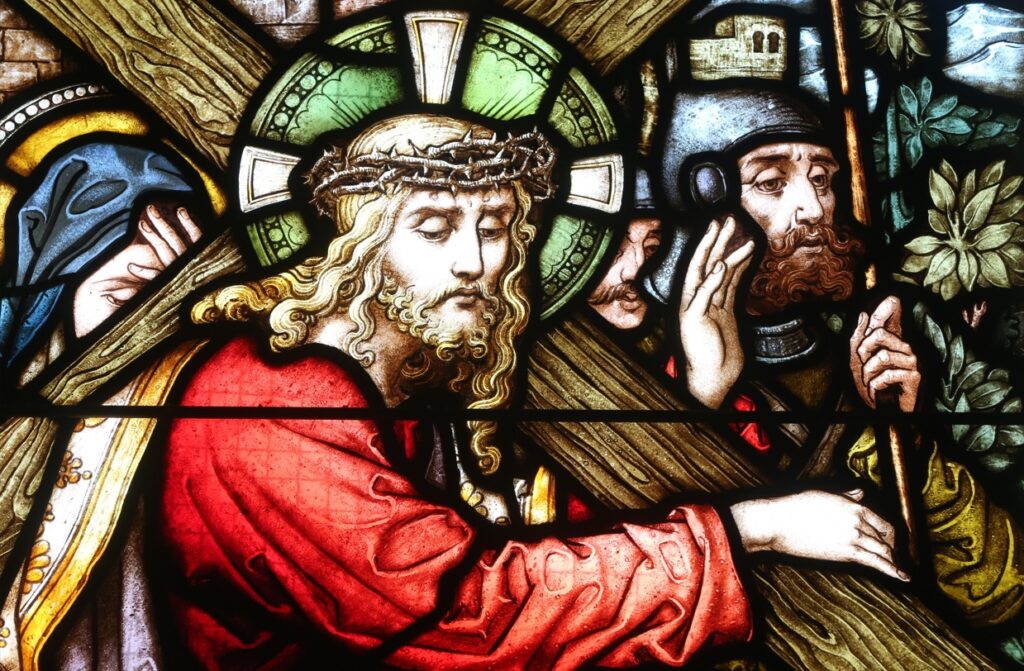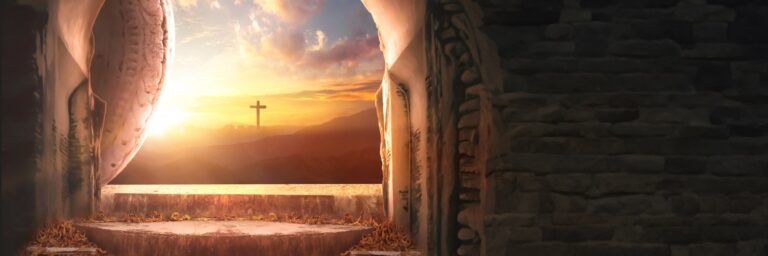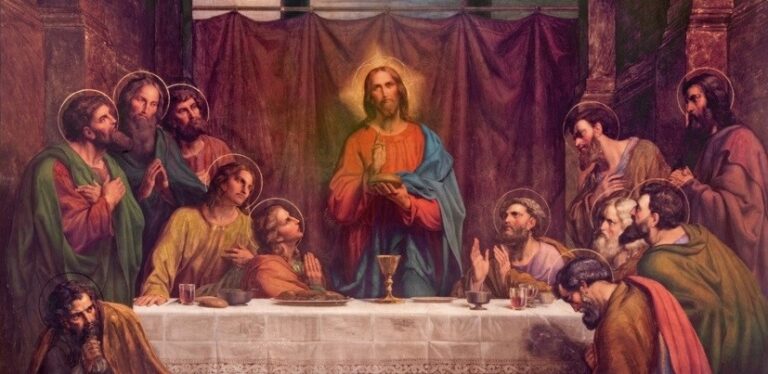
GOOD FRIDAY

Easter is about resurrection — new life springing forth. But before we can get to Easter, we have to go through the Passion of Jesus Christ, the narrative of his suffering, agony and death on the cross.
We play out the Passion around the world on Good Friday. Our solemn liturgies, characterized by prolonged periods of silence, the reading of the sorrowful Gospel of John, the quiet and solemn procession to venerate the cross, remind us of the sobering reality of the impending death of our Lord. His crucifixion is followed by his burial in the tomb, to await the first Easter.
Good Friday reminds us of the paradox that life is marked by death. There cannot be one without the other. The chronicle of our lives is punctuated at different times by many little deaths, even before we reach the final end.
The innocence and wide-eyed wonder of childhood has to die before we are born into adolescence and young adulthood. St. Paul says in 1 Corinthians 13:11, “When I was a child, I spoke like a child, I thought like a child, I reasoned like a child. When I became a man, I put away childish things.” There is a sadness to that, even as we yearn for the expected liberty of adulthood.
Later in adulthood, there is often a passage when we join something larger than ourselves. It could be marriage: “ ‘For this reason a man shall leave his father and mother and be joined to his wife, and the two shall become one flesh’?” (Matthew 19: 5) Or becoming a priest or a vowed religious. In all cases, we need to die to our focus on our own desires and needs to focus on fulfilling the needs of someone else, whether a spouse or an entire community.
Of course, every parent knows that the arrival of children in a family requires a huge death to pre-parent lifestyles and freedom. Not to mention sleep!
For those of us who have enjoyed long careers, there is always an end — a death of sorts to our responsibilities and privileges, along with all the status and perks our jobs entailed. We will reach an age when we must retire and pass on our work to someone younger and more energetic. This offers liberty to do new things, but there is no escaping the sadness of knowing that the satisfaction we derived from doing a job that too often defined our own identity must be left behind.
And then there are the very real human deaths that touch us in our lives. Our parents, siblings, relatives and friends slowly and eventually pass away, one by one. Each passing involves grief and a sense of loss, and we seek consolation in our faith and those who are close to us.
Finally, we face our own death, knowing (if we are people of faith) that it is only a passage to a new and great reality. Yet it remains fear-inducing as, more often than not, it includes suffering, a loss of independence, and a step into a seemingly unknown reality.
Through Good Friday, as we walk with Jesus through his Passion and suffering, we bear with us the many little deaths in our lives. The death and resurrection of Jesus makes sense of them all and imbues them with the sure hope that He ensures our lives have not been in vain.
At such a time, I am consoled by the words of St. Paul (1 Corinthians 15:55): “Where, O death, is your victory? Where, O death, is your sting?”
Joseph Sinasac is a retired Publishing Director of Novalis Publishing. He has been involved with religious communications for almost 45 years as an author, journalist, editor and TV and radio commentator on all things Catholic.


